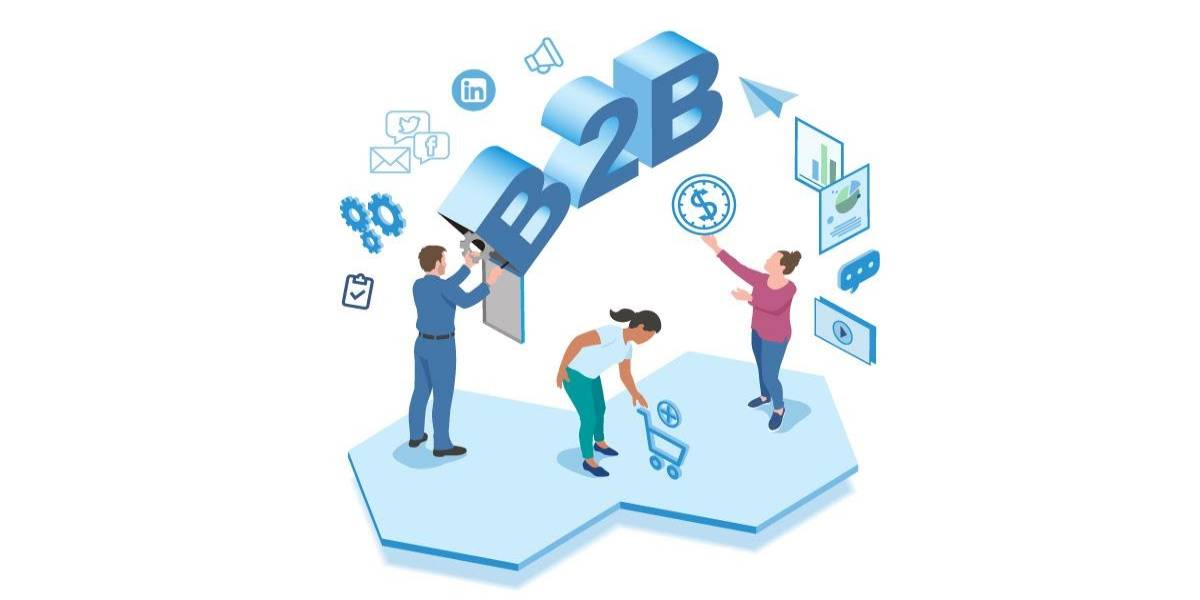In today’s rapidly evolving business landscape, the term “modern B2B” has become increasingly prevalent. With advancements in technology and changes in consumer behavior, businesses are continually adapting to meet the demands of the digital age. This article explores the advantages and challenges of the modern B2B experience.
The Rise of Modern B2B
The modern B2B experience is characterized by a shift towards digital interactions and transactions between businesses. Traditional methods of B2B commerce, such as phone calls and in-person meetings, have been supplemented and, in some cases, replaced by online platforms and digital marketplaces.

Advantages of Modern B2B
- Efficiency: Digital platforms streamline the buying process, allowing businesses to make purchases with just a few clicks. This increased efficiency saves time and resources for both buyers and sellers.
- Global Reach: With the internet connecting businesses across the globe, modern B2B transactions are not limited by geographical boundaries. Companies can reach a wider audience and explore new markets with ease.
- Data-Driven Insights: Digital transactions generate vast amounts of data, providing valuable insights into customer behavior and preferences. Businesses can leverage this data to personalize their offerings and improve their overall customer experience.
- 24/7 Accessibility: Online platforms are available round the clock, enabling businesses to conduct transactions at any time of day. This flexibility is particularly beneficial for companies operating in different time zones.
- Cost Savings: By reducing the need for physical infrastructure and streamlining processes, modern B2B transactions often result in cost savings for both buyers and sellers.
Challenges of Modern B2B
- Cybersecurity Risks: With the increase in digital transactions comes the risk of cybersecurity threats such as data breaches and malware attacks. Businesses must invest in robust security measures to protect sensitive information.
- Complexity: Navigating the digital landscape can be complex, especially for businesses with limited technical expertise. Implementing and managing digital platforms requires careful planning and investment in training and resources.
- Dependency on Technology: While digital platforms offer numerous benefits, they also create a dependency on technology. Any disruptions or technical issues can impact business operations and result in lost revenue.
- Competition: The ease of entry into digital markets has led to increased competition among businesses. Standing out in a crowded marketplace requires innovative strategies and a deep understanding of customer needs.
- Integration Challenges: Integrating digital platforms with existing systems and processes can be challenging, particularly for larger organizations with complex infrastructures. Seamless integration is essential to ensure smooth operations and data flow.
FAQs
Q: How can businesses ensure the security of their digital transactions in the modern B2B landscape? A: Businesses should implement robust cybersecurity measures such as encryption, multi-factor authentication, and regular security audits to safeguard their digital transactions.
Q: What role does data analytics play in the modern B2B experience? A: Data analytics allows businesses to gain valuable insights into customer behavior, market trends, and performance metrics. By leveraging these insights, companies can make informed decisions and optimize their B2B operations.
Q: How can businesses overcome the challenges of integrating digital platforms with existing systems? A: Successful integration requires careful planning, collaboration between IT teams and business units, and investment in scalable and flexible technology solutions. Working with experienced integration partners can also help streamline the process.

Conclusion
The modern B2B experience offers numerous advantages, from increased efficiency and global reach to data-driven insights and cost savings. However, businesses must also navigate challenges such as cybersecurity risks, complexity, and competition. By embracing digital technologies and adopting innovative strategies, companies can thrive in the ever-evolving world of B2B commerce.












